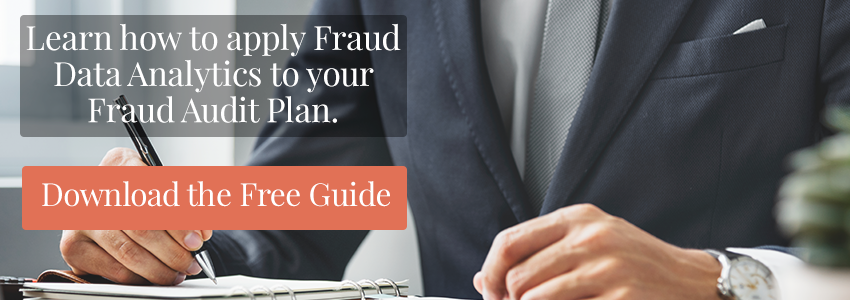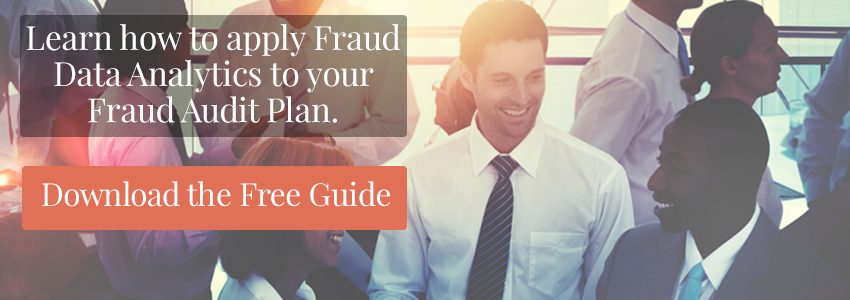Professional Skepticism: The Power of Fraud Knowledge
In June 2021, I will be speaking at the ACFE virtual conference on the Power of Fraud Knowledge. When I speak at a conference, my process is to select a topic, prepare the presentation, and then prepare to communicate the presentation. To do a good presentation, one should never simply read the slides but rather explain them, illustrate the concepts, explain practical applications, and maintain the audience’s interest. So, why am I telling you this?
The reason is simple. If you desire to become the fraud audit expert in your department, then you will need to acquire the power of fraud knowledge, both the theory and the application. So here is my advice: Select a topic: research, acquire, think, reflect, and apply the knowledge.
Let’s start with the word fraud. The word has different definitions depending on the context of where the word is being used. Fraud can be used in a legal context, as an audit term, or in common usage. From a legal perspective, it may be a civil or criminal definition. Depending on your legal system, you may need to add common law theory and case history. So, can you explain each one of these usages, and can you differentiate each usage?
Research and Acquire
From a Legal Perspective
In Southern Development Co. v. Silva, 125 U.S. 247, 8 S. Ct. 881, 31 L. Ed. (1887), the U.S. Supreme Court defined the legal elements of a civil fraud as follows:
- The defendant has made a representation regarding a material fact.
- The representation was false.
- The defendant knew the representation was false.
- The representation was intended to provoke an action by the plaintiff.
- The plaintiff suffered damage as a result.
- In acting, the plaintiff reasonably assumed the representation was true.
In common law jurisdictions, as a criminal offense, fraud takes many different forms, some general (e.g., theft by false pretense) and some specific to particular categories of victims or misconduct (e.g., bank fraud, insurance fraud, forgery). The elements of fraud as a crime similarly vary. The requisite elements of perhaps the most general form of criminal fraud, theft by false pretense, are the intentional deception of a victim by false representation or pretense with the intent of persuading the victim to part with property, and with the victim parting with property in reliance on the representation or pretense and with the perpetrator intending to keep the property from the victim. (Source: Wiki.)
In one sense, the definitions seem self-explanatory, however, there is a reason law school in the USA is three years. Each phrase and word has several meanings and interpretations within the legal world.
From an Audit Perspective
The Institute of Internal Auditors defines fraud as “any illegal act characterized by deceit, concealment or violation of trust… not dependent on the threat of violence or physical force… perpetrated by parties… to obtain money, property or services; to avoid payment or loss of services, or to secure personal or business advantage."
The YellowBook defines fraud as “A type of illegal act involving the obtaining of something of value through willful misrepresentation.”
Public Company Accounting Oversight Board (PCAOB): Description and Characteristics of Fraud
Section .05
Fraud is a broad legal concept and auditors do not make legal determinations of whether fraud has occurred. Rather, the auditor's interest specifically relates to acts that result in a material misstatement of the financial statements. The primary factor that distinguishes fraud from error is whether the underlying action that results in the misstatement of the financial statements is intentional or unintentional. For purposes of the section, fraud is an intentional act that results in a material misstatement in financial statements that are the subject of an audit.
Section .06
Two types of misstatements are relevant to the auditor's consideration of fraud—misstatements arising from fraudulent financial reporting and misstatements arising from misappropriation of assets.
Common Usage
Webster’s dictionary defines fraud as “A deliberate deception practiced so as to secure unfair or unlawful gain.”
Practical Application
Think/Reflect
So now that you have researched and acquired knowledge, you will need to think and reflect on all of these definitions. The fundamental question to ask yourself is how does all this knowledge make me a better auditor? How do I apply this to my day-to-day work?
Apply
Through the study of the word “fraud” and through my knowledge of the word “risk”, I created my definition of fraud risk:
An intentional and concealed threat that is designed to cause harm to the organization by exploiting the natural vulnerabilities that exist within our overall internal control structure.
From this phrase, I developed three different kinds of fraud risk:
Inherent fraud scheme; fraud risk statement, and fraud scenario. I then integrate these three concepts into my fraud data analytics, fraud audit procedure, and my fraud audit program.
The Power of Fraud knowledge
I would encourage you to start your journey of becoming a fraud audit expert with these steps: research, acquire, think, reflect, and apply the knowledge.
- Write a paper and distribute the paper in your department, your company, or your profession.
- Decide to become a lecturer on fraud auditing. Submit a proposal to your professional organization.
- Volunteer to create the first fraud audit program for your department.
Just curious: why do you think I write a monthly blog? I know that with each blog I write, I become better at my trade! Hope to see you at the conference!





